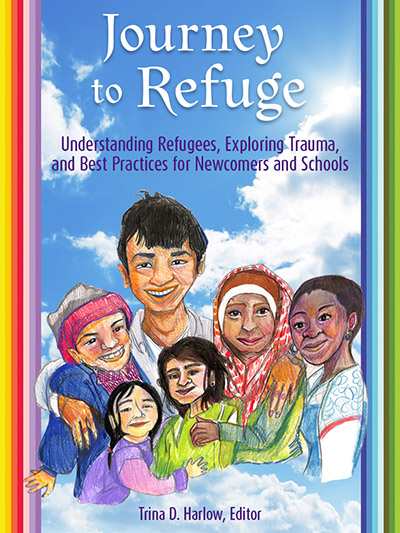A Composer's Story: Alex Wakim
An interview with composer Alex Wakim, who created the custom score for the film Refuge in the Heartland.
Transcription:
Hello, my name is Alex Wakim. I'm from Wichita, Kansas and I'm a composer. Music has been a part of my life since I was very young my parents put me in piano lessons at the age of three and that was my introduction into the world of music. I started taking composition lessons throughout high school and started really writing down my music. When I got to college at Kansas State University that's when I really started to understand what this was all about. I wrote a significant amount of concert music to just really develop my skills for how to write for instruments how to write music that sounds good. As all that was picking up, I started really developing my love for the storytelling aspect of music and so that's when I really started realizing my love for film music and for writing for musical theater and then I was fortunate enough to start collaborating with different entities to score short films and documentaries to start applying those skills and just create with other people. There was a lot of joy playing other people's stuff but there was this intense curiosity for just the prospects and the ability to make something that was never there. I just think there's so much opportunity to say something and be a hundred percent creative.
The particular challenge associated with creating music for film really boils down to understanding the emotion that that film wants people to feel and how do I emphasize that with music. Film music's job is to speak to the subconscious it's not supposed to be noticed and that's the weird paradox with writing. It's not supposed to be noticed. I think the most intense challenge and maybe one that takes years to even start to crack into is how do I stay true to the emotion of the picture while staying true to my compositional voice. That's kind of the gold standard of scoring a picture. Three months ago, I was asked to score a piece of a documentary. It's a very intriguing project because it looks at the lives of refugee kids in school. I think it's a very important subject especially now there's a large stigma around refugee populations.
This documentary is a wonderful way to really learn what their stories are and see them as people and not just as numbers or as something that might be scary because they're not they're people just like us. For me it hits a personal note because my family is from Lebanon. They moved here during the war in Lebanon which is similar to the situation in Syria right now. Learning just who these people are and giving them a chance, I think is important for society and to approach it with compassion instead of with fear and my hope is that my music can create a certain type of story that just makes a difference. I definitely believe that there is the force that's greater than us that really inspires the soulfulness of music. Sometimes you're trying to do it all yourself and you can't do it and then you take a step back and maybe you know go back to spiritual roots or something. I think it just kind of flows from you and I think that's one of the greatest ways to create is when something's flowing through you and not necessarily it's just me. The kinds of projects I would like to be working on are projects that really speak to people with people that want to sell stories that matter, and my hope is that my music can emphasize that or create a certain type of story that just makes a difference.
 Download the eBook at New Prairie Press.
Download the eBook at New Prairie Press.
Recommended Citation: Harlow, Trina D., "Journey to Refuge: Understanding Refugees, Exploring Trauma, and Best Practices for Newcomers and Schools" (2019). NPP eBooks. 26. https://newprairiepress.org/ebooks/26/
This work is licensed under a Creative Commons Attribution-NonCommercial 4.0 International License.
See the full Refuge in the Heartland documentary.
For more information:
Dr. Trina Harlow
Book Editor and Film Co-Director
drtrinaharlow@gmail.com